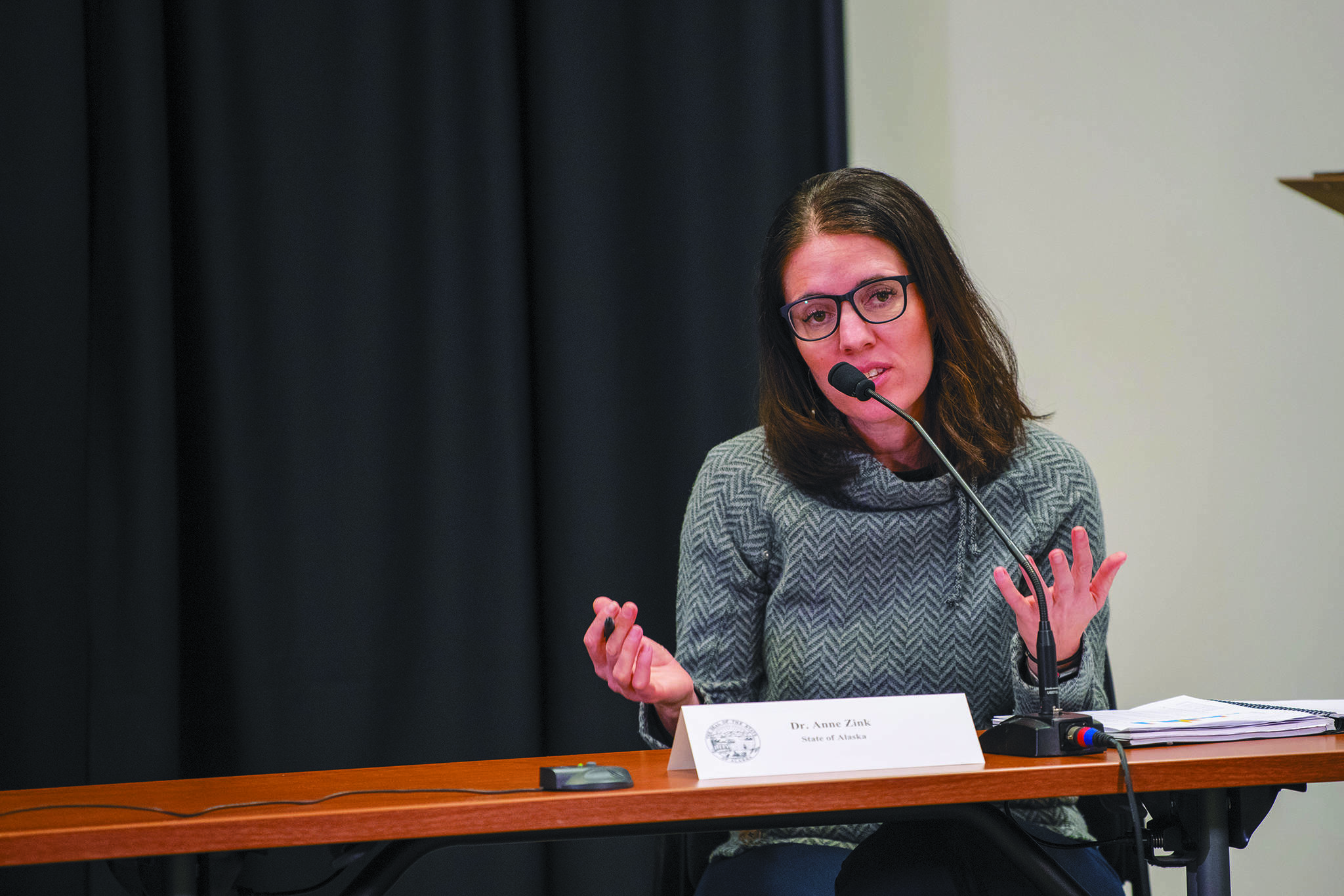Alaska is close to seeing the first COVID-19 vaccines arrive in the state following the advancement of two vaccines that Alaska’s chief medical officer, Anne Zink, has called “incredibly promising.”
The earliest the vaccine could arrive in states is Dec. 11, Tessa Walker Linderman, Department of Health and Social Services lead for the Alaska COVID-19 Vaccination Task Force, said Monday during an informational session hosted by the state.
Pfizer first announced their COVID-19 vaccine candidate earlier this month, with Moderna not long after. Just over a year has passed since the first case of COVID-19 was identified in China. Zink has repeatedly said that for all the damage COVID has caused, scientists worldwide have been working together from the beginning to try and find a solution.
Pfizer applied for Emergency Use Authorization (EUA) for its vaccine candidate last Friday. The FDA plans to assess the application on Dec. 10. Moderna is expected to apply for an EUA in the next few days as well.
Emergency Use Authorizations facilitate the availability and use of medical countermeasures during public health emergencies, according to the U.S. Food and Drug Administration. This includes COVID-19 vaccines. Vaccines that are granted EUAs cannot be mandated by private businesses and there is currently no plan by the State of Alaska to mandate that individuals receive a COVID-19 vaccine, Zink said during the informational session Monday.
Health officials have been encouraged by the high efficacy rates of the Pfizer and Moderna vaccines, which are both over 90%. Zink, during a work session with Soldotna City Council, said Thursday that even in cases where study subjects contracted COVID despite receiving the vaccine their illnesses were mild and no severe illnesses were reported.
Even when vaccines arrive in states, supply is expected to be extremely limited and will be distributed on a priority basis. It is not yet known which group of individuals will be the first to receive the vaccine in Alaska, but it is expected that health care workers will be high on the list.
Pfizer and Moderna’s vaccines require different temperature storage, which may change how the state is able to distribute them. Pfizer’s vaccine must be stored at ultracool temperatures, whereas Moderna’s vaccine can be stored at the same temperatures as other vaccines. Because Moderna announced their vaccine just days after Pfizer, Zink on Thursday said they are hopeful the state will be able to acquire a vaccine that can more seamlessly be stored within the state’s existing vaccine infrastructure.
Zink also emphasized that the COVID-19 vaccine will be a two-dose process and that it will be important for people who receive their first dose to follow up for their second. The time between the two doses varies depending on which vaccine is being administered. For the Moderna vaccine, the two doses must be given four weeks apart. For the Pfizer vaccine, the two doses must be given three weeks apart.
More information about Alaska’s statewide vaccination plan can be found on their website at http://dhss.alaska.gov/dph/Epi/iz/Pages/vaxpacket/default.aspx.
The full pop-up informational session can be viewed at http://dhss.alaska.gov/dph/Epi/id/Pages/COVID-19/echo.aspx.
Dr. Zink’s work session with the Soldotna City Council can be viewed at https://www.soldotna.org/government/listen-to-meetings.
Reach reporter Ashlyn O’Hara at ashlyn.ohara@peninsulaclarion.com.

